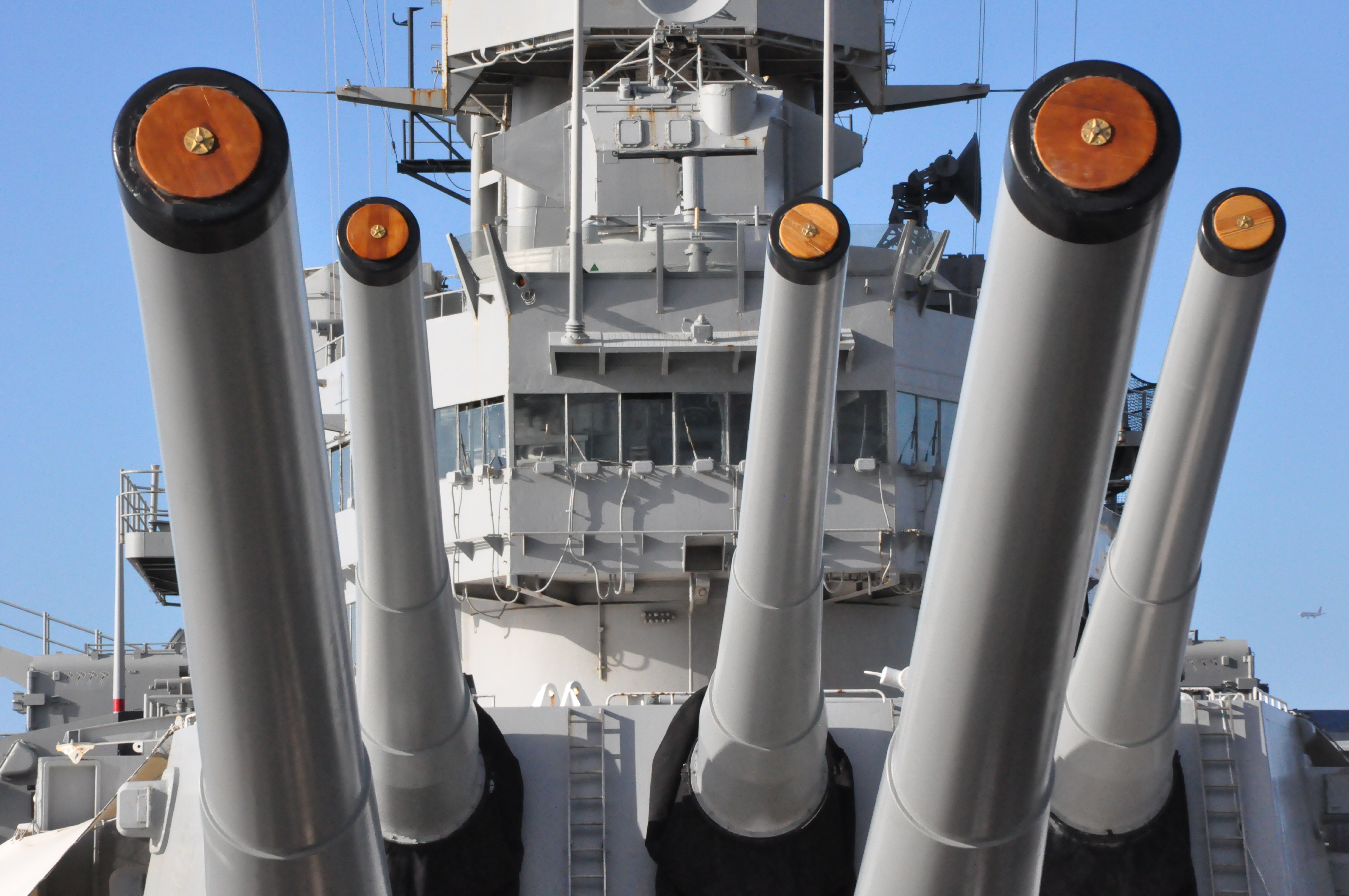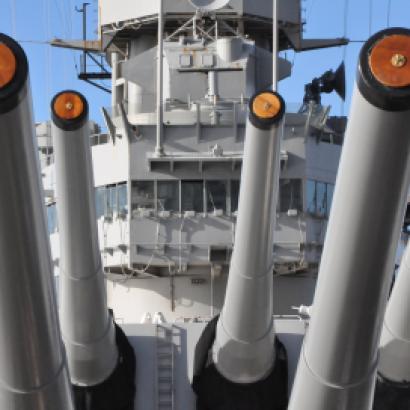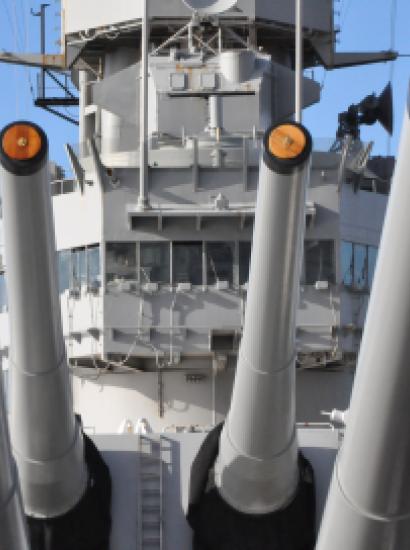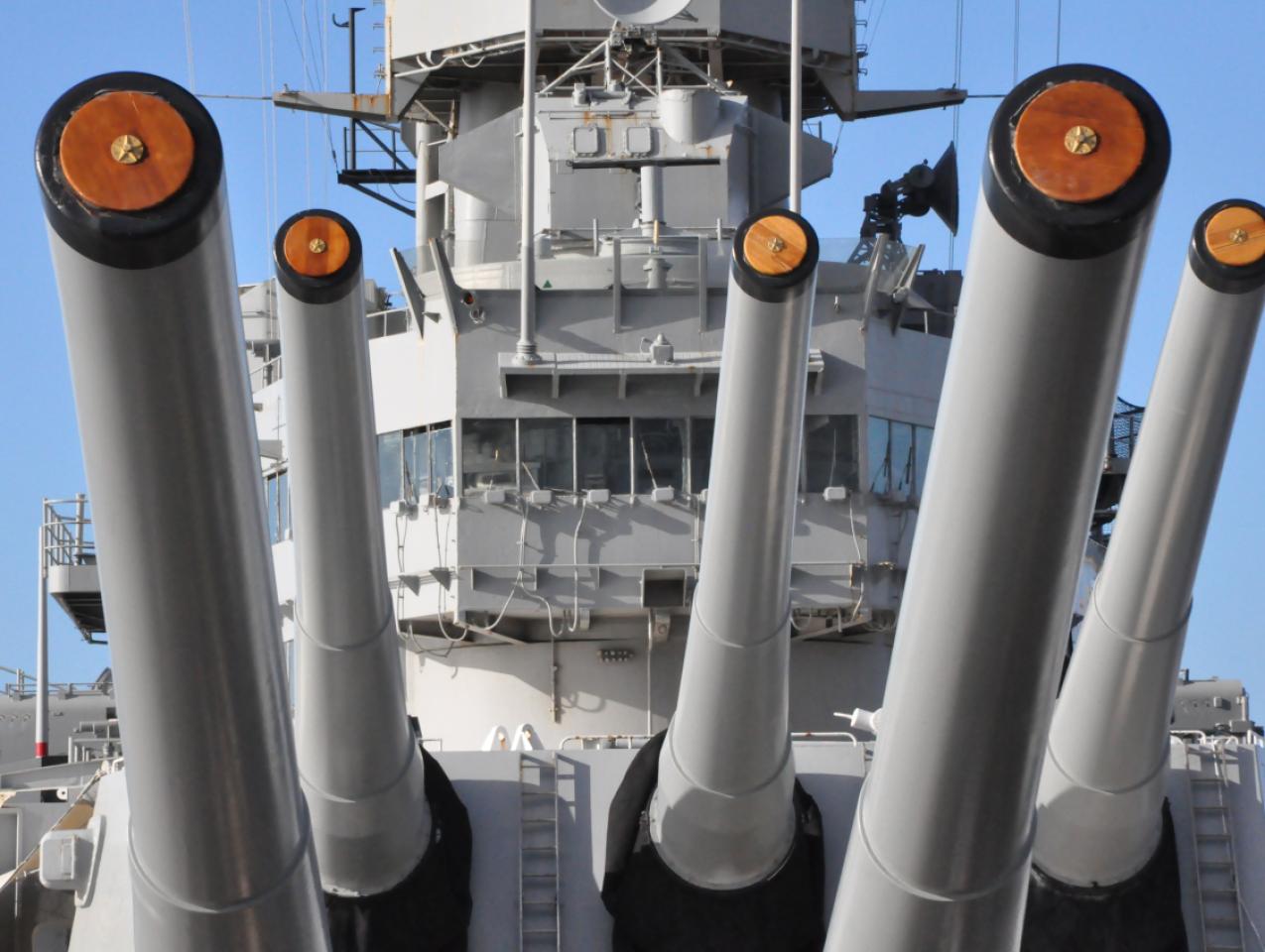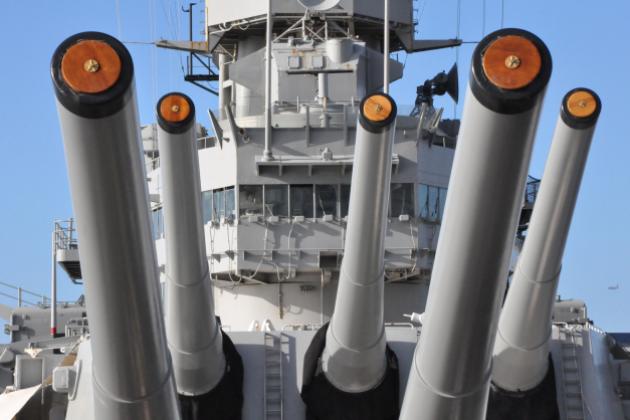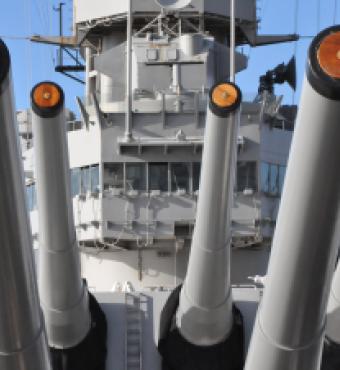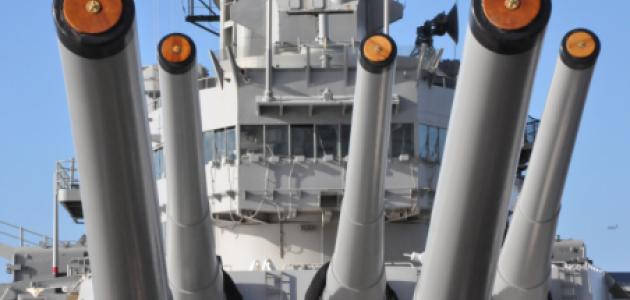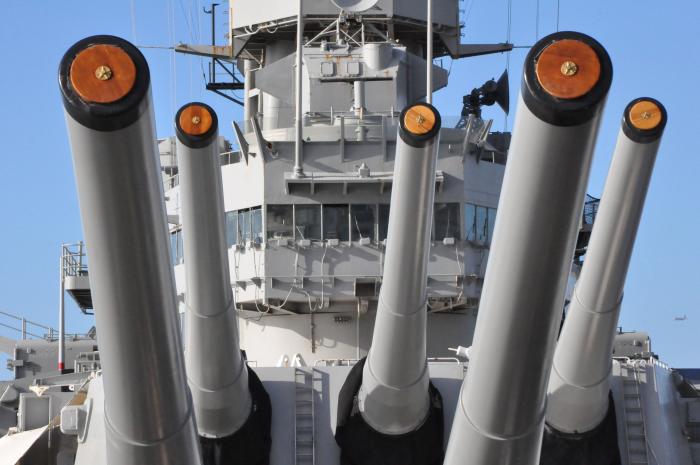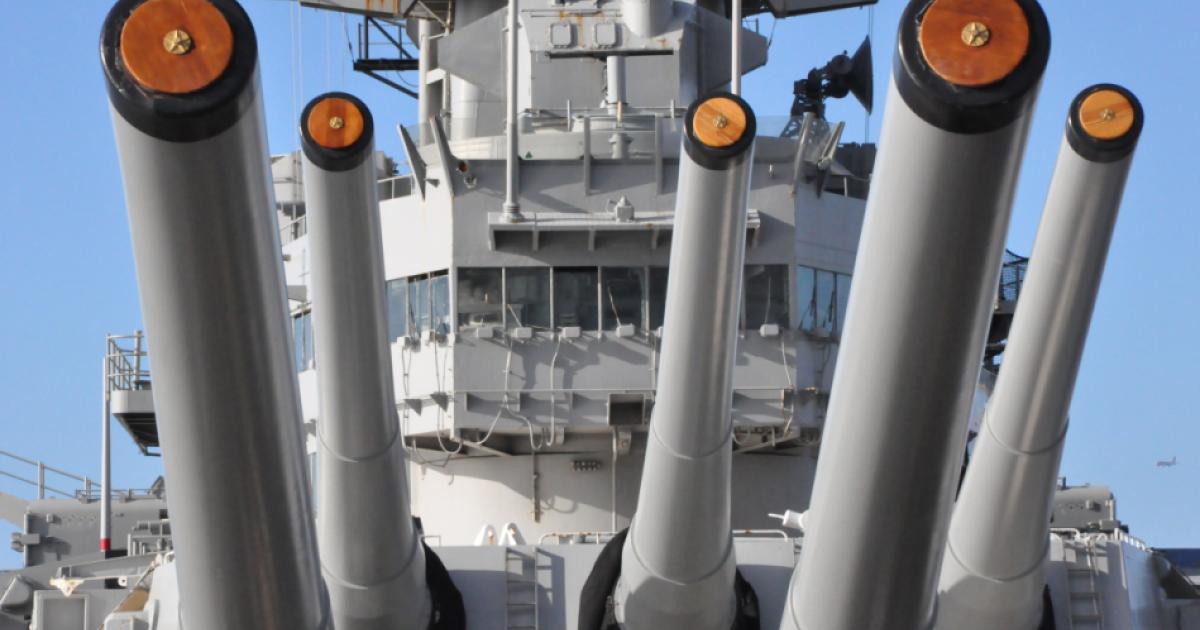- Politics, Institutions, and Public Opinion
- Understanding Public Opinion
If you have a spare moment today, dip into your rum ration and have a daily tot in honor of the 250th birthday of the United States Navy, which is Monday.
While the high-seas branch of America’s armed services won’t receive the same land parade in the nation’s capital that was afforded the US Army for its semi-quincentennial back in June (though there will be a big gala in Philadelphia), a grateful nation should honor the courage and sacrifice of those sailors who led freedom’s forces to victory in two world wars, followed by eight decades (and counting) as a deterrent to Soviet and Chinese blue-water ambitions.
However, the birthday also comes with a sour note. And that would be the Navy’s ongoing struggles with politics, political correctness, and name consistency.
Let’s begin with the PC side of the coin.
Earlier this summer, Secretary of War Pete Hegseth announced the renaming of a fleet oiler bearing the name of Harvey Milk, the first openly gay politician to hold office in California, in favor of Oscar V. Peterson, a Navy chief petty officer and Medal of Honor recipient who died from burn injuries suffered in the Battle of the Coral Sea.
Hegseth’s explanation at the time: “We are taking the politics out of ship naming. We’re not renaming the ship to anything political. This is not about political activists.”
Hegseth furthered that sentiment more recently when speaking to an assembly of top military brass at the Marine Corps base in Quantico, Virginia: “This administration has done a great deal from day one to remove the social justice, politically correct, and toxic ideological garbage that had infected our department, to rip out the politics. No more identity months, DEI offices, dudes in dresses. No more climate change worship. No more division, distraction, or gender delusions. No more debris.”
That said, Hegseth did leave something of a debris field after the new administration announced its intention to cull the Pentagon’s image database of DEI-related content. Swept up in that purge: the famed bomber Enola Gay, for reasons having to do with misinterpreting the middle name of the mother of Colonel Paul Tibbets, the pilot who led America’s first atomic mission. The B-29 is on display at the Smithsonian’s Udvar-Hazy Center outside Washington.
Sadly, Hegseth was picking up where the Biden administration left off.
In February 2023, it removed the name Chancellorsville from the stern of a Ticonderoga-class cruiser so as to disengage from a Confederate Civil War victory (the new name is that of Robert Smalls, a South Carolina–born slave who commandeered a Confederate ship and sailed it to freedom).
Eight days later, it renamed an oceanographic survey ship that previously honored Matthew Fontaine Maury, the famed “Pathfinder of the Seas” who switched sides in the same struggle (the new name: Marie Tharp, in honor of a celebrated geologist and oceanographic cartographer).
Which is all fine and swell, except for one problem: if righting the wrongs of the past is part of the Navy’s mission (talk about a lousy Tom Clancy novel), what about the two aircraft carriers named after a pair of segregationist members of Congress (the USS Carl Vinson and USS John C. Stennis), plus one named after a slaveholder (the USS George Washington)?
They’re America’s modern ships of the line, with service lives of fifty years or more. But are the two names an affront to the approximately one in five Navy members who identify as black?
To be fair, Navy name controversies predate the past two presidencies. In April 1982, the Reagan administration changed the name of an attack submarine from Corpus Christi to City of Corpus Christi after protests by church groups and a radical Christian activist’s hunger strike. In November 1995, the Clinton administration designated a guided-missile destroyer in honor of Winston Churchill—a controversy more to do with timing than merit; the American president broke the news during an address to the Houses of Parliament and amid a sales campaign to persuade a reluctant Great Britain to go along with a Northern Ireland peace deal.
Nearly three decades later, America’s forty-second president is in the middle of another naming flap, thanks to a decision made in the final days of the Biden administration to name two future aircraft carriers after a pair of living former presidents, Bill Clinton and George W. Bush.
The choice of Clinton (presumably made before an incoming Republican administration might choose otherwise) is problematic for several reasons, one being his maneuvering to avoid military service. Also problematic, keeping in mind that about one-fifth of the branch consists of women: the sex scandal involving a gullible White House intern that nearly scuttled Clinton’s presidency—and might well have, in the era of #MeToo politics.
So how to justify Clinton’s high honor? Simple: he’s an American president, which supposedly is the standard rule for a new class of carriers whose lead ship is named after Gerald Ford—America’s thirty-eighth president having served aboard a light aircraft carrier in World War II as an assistant navigator and anti-aircraft battery officer.
But the Navy has veered off course in its naming consistency. Four of the six Ford-class carriers either commissioned, under construction, or planned bear the names of American presidents. The two other carriers? CVN-80 will be the ninth vessel to be called Enterprise. Five years ago—on MLK Day, no less—the news came that the future CVN-81 would carry the name Doris Miller, in honor of the first black recipient of the Navy Cross, a sailor who behaved heroically during the Pearl Harbor attack.
You might ask: what about future carriers as the Navy slowly replaces its aging fleet? Would Donald Trump—like Bill Clinton, an impeached president with abundant character flaws and a shady draft past—join the ranks of the thirteen presidents living and dead who’ve been deemed carrier-worthy?
Here are two suggestions for the Navy, coming from the son of a longtime Reservist who treated his young boy to repeated trips to see the great Atlantic fleet in Norfolk and the “mothball” fleet in Philadelphia. Monday, in addition to being the Navy’s birthday, also marks ten years since Capt. William F. Whalen, USNR, passed away.
First, take the politics out of ship naming—carriers in particular.
At present, that responsibility falls to the secretary of the Navy, who happens to be a presidential appointee unlikely to defy the White House (not to mention maybe having his own political ambitions). Either maintain the status quo, with one tweak—an embargo on new ship names while presidencies are transitioning—or establish a board of retired admirals and naval historians to do the honors. Presumably, they would be free of partisan motives.
And if the choice for future carriers does indeed come down to heads of state, two presidents stand out: Franklin D. Roosevelt, overseer of an armada that grew to nearly 6,800 vessels by 1945 (nearly thirty times America’s current active naval inventory); and Thomas Jefferson, America’s third president and a complicated figure in that he both advocated reduced naval spending and exerted American sea power (a blockade of Tripoli harbor).
The second suggestion: create one standard for ship classes and stick to it, thus ending a slide that dates back to 1973 and President Nixon affording carrier honors to Carl Vinson, a Georgia congressman and benefactor of the fleet as the chair of the House Committee on Naval Affairs (here’s a summary of how current ship classes are designated).
That could mean presidents-only for future carriers—and the same consistency for surface ships and submarines. Back in its heyday, the Navy kept it very simple: carriers, for the most part, were named after ships of the line; battleships were named after states; cruisers after cities; and submarines after fish.
Would doing so free the Navy from shifting political winds? That’s anyone guess. But at a minimum, it would free up our leaders to tend to a more important matter: the projection of naval might.
Today and all days, thank the United States for the freedom we enjoy. And send a prayer—not only for those in peril on the seas, but that the naming of America’s fighting ships is put back on an even keel.







